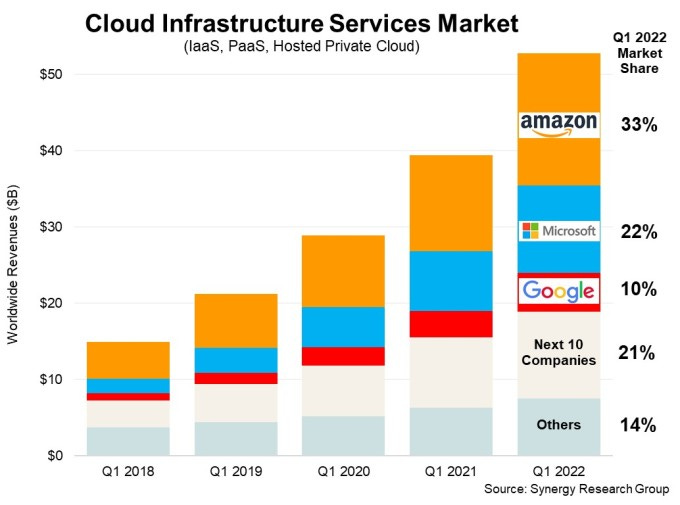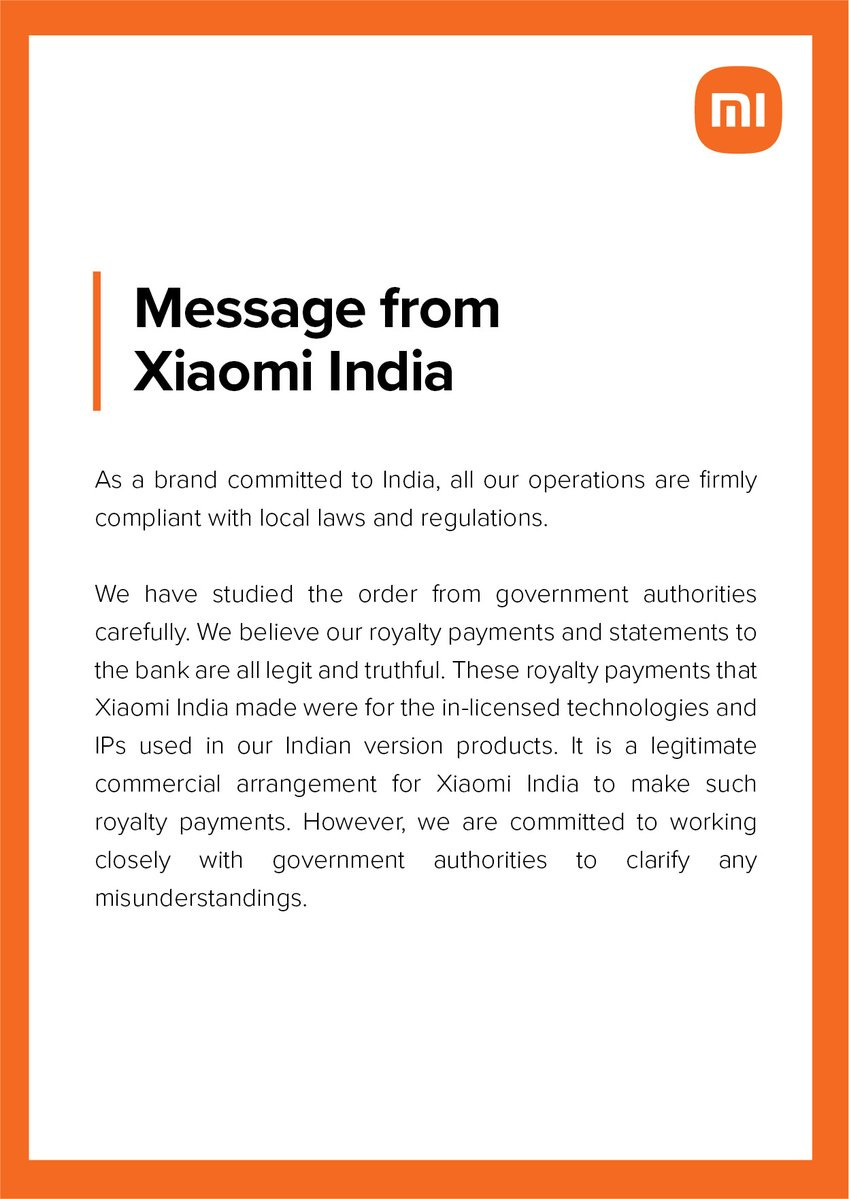Are you as excited about the NHL playoffs as we are? Or are you as exhausted as we are with the deluge of developments? No matter your energy level - Go Leafs!
This week we have Amazon’s shorter leash; Baidu’s driverless taxis; Smartphone makers get slapped; Snap’s latest gadgets; Starbucks can now recharge your car; and, Google does it again!
Don’t forget Nominations for our second cohort are ongoing for our Expert Circle!
Analytics, Digital, Design In Action
Amazon’s Shorter Leash
Amazon’s stock plunged to a two-year low as shares slid as much as 12% on Friday morning after the company reported its first-quarter results. Profits were hit by a USD6Bn headwind from supply chain inefficiencies and general inflation. Amazon's sales increase of 7% in the quarter, compared to a 44% rise in the same period last year, marked the company's slowest growth rate in more than two decades.
Amazon has spent USD100Bn over the past two years, more than its total expenditures over its lifetime, to buttress its logistics and safety capabilities for COVID. However, slowing growth and declining profits never go well together, and it doesn’t help that CEO Andy Jassy was absent during the call. Lastly, Amazon’s results come at a time when the company is seeing a growing push toward unionization from its workforce. Earlier this month, workers at Amazon’s JFK8 fulfillment center voted to unionize, marking a historic day in a hard-fought battle.
Cloud was the lone bright spot, with Amazon Web Services growing ~38% on a colossal base of USD16Bn. Time will tell if the stellar results from AWS can offset the lagging e-commerce unit. Overall, investors want Amazon to reign-in its spend and beef up margins during the the most inflationary period we’ve seen.
Baidu’s Driverless Taxis
Baidu Inc.’s ride-hailing service will deploy cars without humans behind the wheel on Chinese roads for the first time, a symbolic victory in a years-long quest to carve out businesses beyond internet advertising.
Baidu and AI driving startup Pony.ai Inc. can now dispatch autonomous cars with safety personnel only in the passenger seat, whereas previous regulations mandated a human ready to grab the wheel in an emergency.
Neither Pony nor Baidu will be charging a fee for driverless rides yet, although both companies are currently running commercial services with robotaxis in Yizhuang, Beijing. This 60sq.km stretch of Beijing, home to ~300K residents, is also where both Baidu’s and Pony’s driverless service will run.
Baidu is transitioning to AI and self-driving after its core advertising revenue shrank in the mobile era. Its smart driving business provides software to carmakers like Geely and runs a ride-hailing platform powered by a fleet of robotaxis in nine cities including Guangzhou and Beijing. Its electric vehicle spinoff raised USD400Mn from external investors, and plans to start mass production in 2023.
Smartphone Makers Get Slapped
The EU Commission has shared the preliminary findings of an antitrust case focused on Apple Pay on iOS devices. According to antitrust investigators, Apple abused its dominant position, as competitors can’t provide NFC-enabled contactless payments on the iPhone to develop other mobile wallets and compete fairly with Apple Pay.
According to regulators, the main issue is that NFC is available in almost all payments terminals but only Apple Pay can wirelessly communicate with payment terminals via NFC. It’s a standardized, safe and seamless way to pay, which could explain why Apple Pay gained market shares.
Meanwhile, India’s anti-money laundering agency has seized assets worth about USD725Mn from Xiaomi India for breaching the country’s foreign exchange laws in a major blow to the Chinese phone maker that commands the Indian smartphone market, with ~40% market share.
Snap’s Latest Toys
We’ve written extensively about Snap before and, even then, its latest products only further prove our views of its pioneering nature. Snap held its latest Partner Summit recently.
First, it has a new mini-drone, called Pixy. Pixy is a mini drone that can act as a camera sidekick when you can’t ask someone to take a video of you. It’s yellow, it’s cute and it’ll be available in the U.S. and in France for $229.99.
Snap also showed new features for its AR experience for concerts - perfect for the reopening - and its avatar base Bitmoji, which goes well with discovering new connections and making it more friendly for other kinds of users.
Last, but not least, we want to spotlight Snap’s growing developer platform. Snap is launching Lens Cloud, a server-side component that will help developers build dynamic, multiplayer experiences. Developers can take advantage of multiuser services, allowing users to interact with each other in the same lens.
Another perk is that location-based services let developers anchor Lenses to places, starting with Central London. For instance, museums could leverage that to enable certain Lenses when you’re pointing your camera at a specific landmark.
Lastly, developers can store assets on Snap’s servers and load them up on demand. It can also act as a sort of memory card. Users can leave a Lens and pick up where they left off later.
Recharging at Starbucks
With the EV race reaching fever pitch, and news billion-dollar initiatives sprouting left and right, an inconspicuous player is looking to partake in the next generation of vehicles. Starbucks is partnering with Volvo and Chargepoint to install EV chargers in its parking lots along a 1,350-mile route from Denver to Seattle, with stops available roughly every 100 miles.
While charging times vary depending on the vehicle, Volvo says its electric cars can go from a 20% charge to 90% in 40 minutes, just about the same time it takes for a coffee break.
Google Fires AI Researcher, Again
Photo: Drew Angerer/Getty Images
Less than two years after Google fired two researchers who openly criticized inherited biases within artificial intelligence systems, Satrajit Chatterjee, the researcher who led a team of scientists, was terminated with cause, shortly after Google told his team not to publish a paper that rebutted some of the claims made in a celebrated research paper, published in Nature last year.
In 2020, Google fired ethicist Timnit Gebru following a dispute over a paper with two others following suit. It has been ongoing tension among Google’s A.I researchers, which reflects much larger struggles across the tech industry - social issues entangled with technology advancement and humans who build technology.
We’re also recruiting for our ABD Team!
Check out the following positions that we are actively hiring.
Please spread the word and show us some love 😘
If you like what we are doing, please consider sharing it with your friends, family, and colleagues. We are a nonprofit organization that is 100% run by volunteers who might look just like you. We are sending a weekly digest every Tuesday. Until the next time!
Lastly, here’s a photo from the MET Gala to end this week’s Digest. Stay gorgeous!











